For some unknown reason they started returning in the in the late 1950s, reaching my area of northern New Jersey only a few years after I left for good when I got drafted into the service in 1966. Now they are abundant all over the Garden State, as they are in our present home in south Florida.
They are handsome birds. The male has a conspicuous red area on the top of his head that extends from nape to forehead.
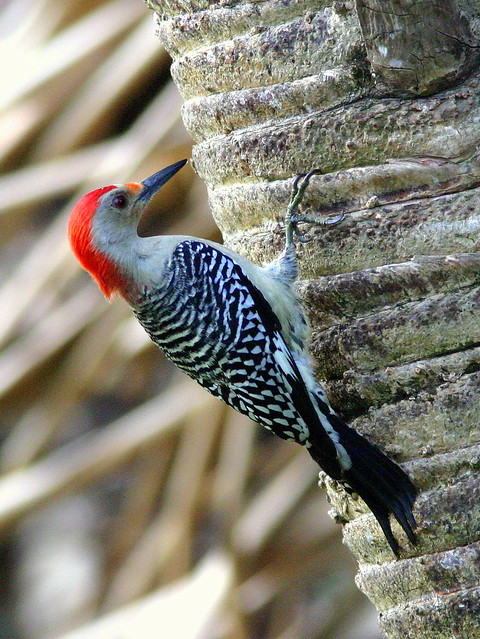
Sometimes you can even see his red "belly."
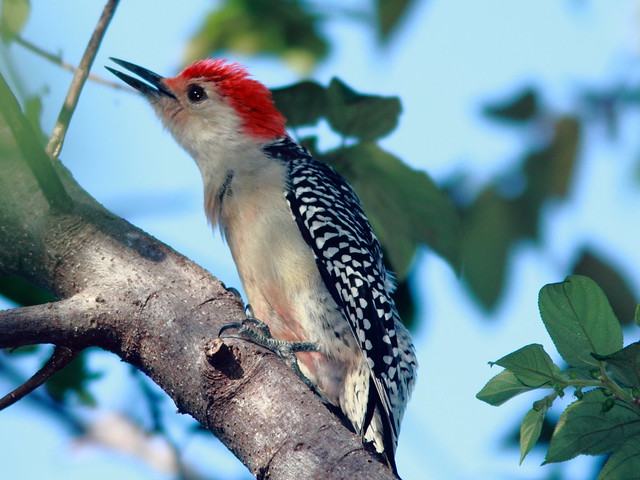
This male is visiting a feeder at National Audubon's Corkscrew Swamp Sanctuary.

They are gregarious, often seen in small family groups and more often heard than seen, as this homeowner will attest as one drums loudly on the rain gutter.

The red area on the female's head is limited to the nape.

Here a pair explores the top of a dead Royal Palm in our neighborhood wetlands.
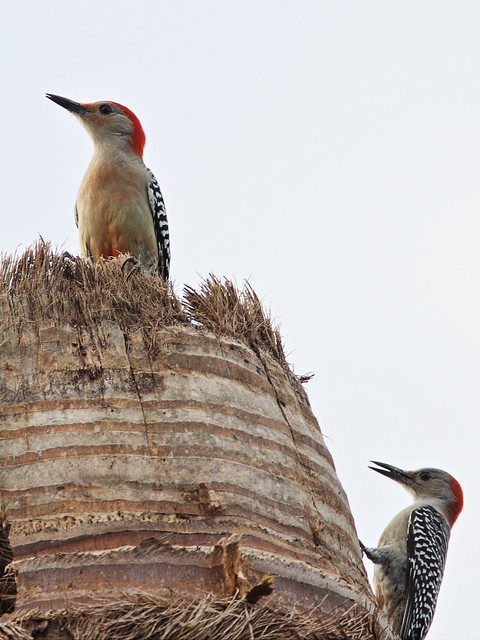
I came upon this one while he was sunbathing. As I watched he started scratching and then rubbing his head against a branch before flying off.
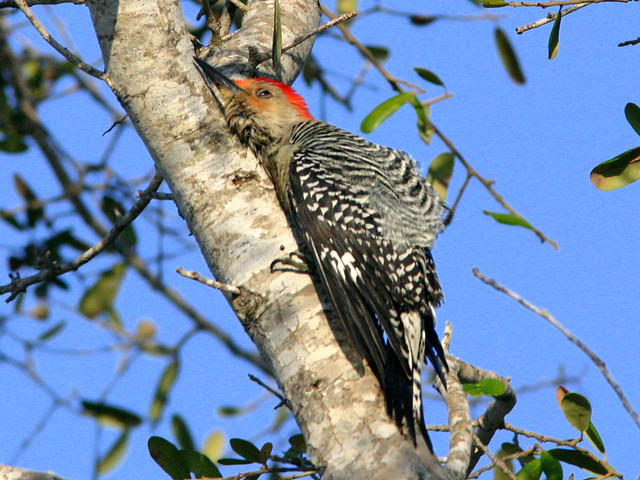
The related Golden-fronted Woodpecker ranges from Texas down into Mexico. The two species overlap in central Texas. This one visited a feeder in Palo Duro Canyon in the Texas Panhandle. It is a particularly beautiful bird.
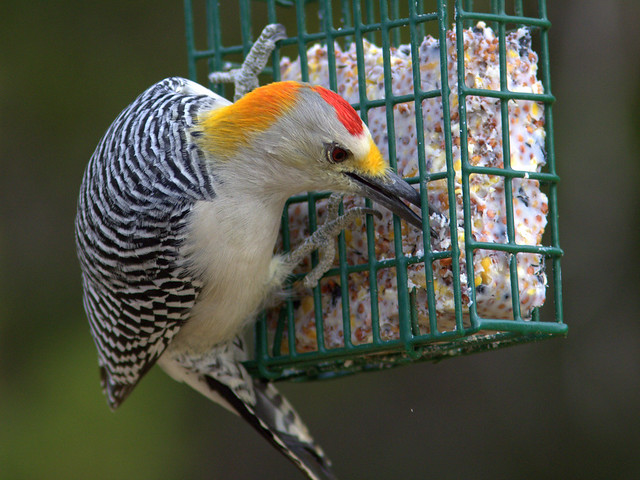

A third similar species, the Gila Woodpecker, is restricted to the arid southwestern US-- southern Arizona and extreme southern California. It looks like a drab version of the Red-bellied. The red is confined to a small patch atop the head of the male. I photographed this one in the Arizona Sonora Desert Museum in Tucson.
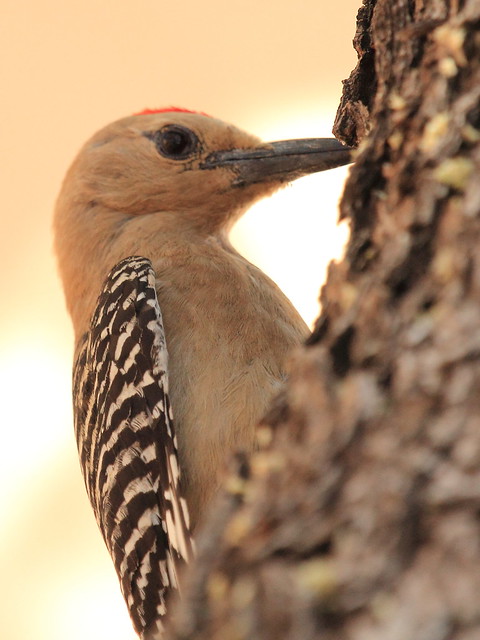
The Gila Woodpecker favors Saguaro Cactus, in which they excavate unique cavities in the spiny plant's soft wet pulp. They must wait several months for the walls to dry into a durable hard enclosure.

we get lots of red-bellied here. i love them. those last two are awesome! we don't get those types in this part of texas.
ReplyDeleteBrilliant photography Ken! I haven't any of these! The Golden-fronted is spectacular!
ReplyDeleteHI Kenneth These Woodpeckers are wonderful and your photography is stunning. it is lovely to be able to see them up close and to see all the details. They are really beautiful, Have a great weekend
ReplyDeleteBeautiful serie!
ReplyDeleteWhat tremendous images...so beautiful. I especially like the pose you managed to capture through the lens where it's rubbing against the bark of the tree branch!!
ReplyDeleteWOW! Great photos! I can never get clear shots of these birds.
ReplyDeleteI didn't know there were so many varieties. We have lots of red-bellied around here. Love woodpeckers! Nice shots!
ReplyDeleteBeautiful woodpeckers! I saw a Black Woodpecker this week, but I didn't get any photos of it.
ReplyDeleteI love our red-bellied family. We had one in Texas and now in Louisiana who are residents. It's one of the first birds that got me into birding. I did not know the glia and golden-fronted were so closely related. Enough rambling...your photos are absolutely brilliant! Each one in a different pose or location. Very nice.
ReplyDeleteWonderful images of a stunning little bird...
ReplyDeleteWow, very beautiful photos.
ReplyDeleteGreat photos and beautiful birds. It's very interesting to see the three related species up close. I think the Golden-fronted bird is the most beautiful!
ReplyDeleteGreat series on the woodpeckers.. Gorgeous photos!
ReplyDeleteAmazing shots of wood pecker.
ReplyDeleteFantastic images as always Ken!
ReplyDeletePS...have a safe trip to AZ and sorry for your family's loss!!
A lovely collection of 'peckers Ken, great shots one and all. You certainly have your share of the world's colourful ones in North America.
ReplyDeleteGreat birds - I managed to get a brief glimpse of a Gila WP when i was in AZ - not pictures though. Shame.
ReplyDeleteCheers - Stewart M - Melbourne